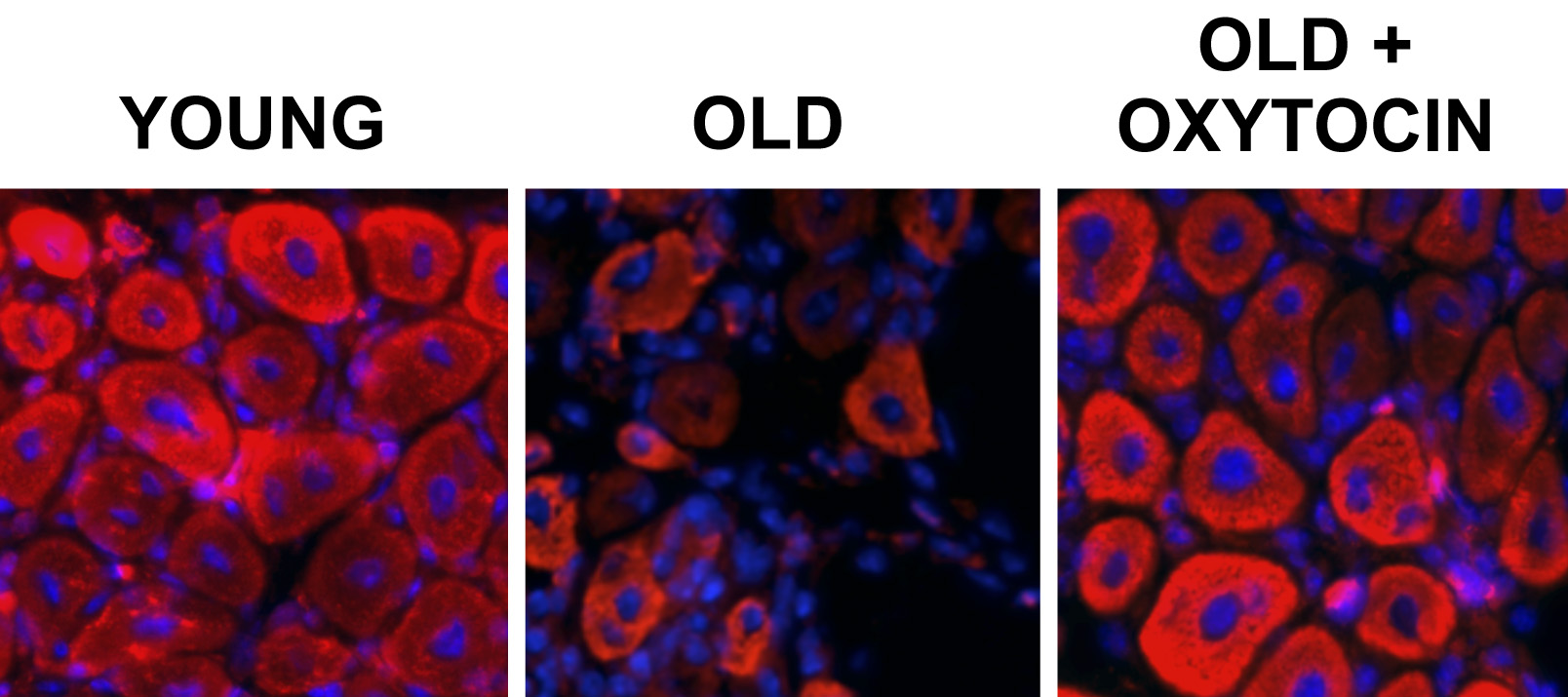
From birth until about the age of 30, your muscles continue to grow larger and stronger. But at some point in your 30s, you begin to lose muscle mass and strength which in turn affects your coordination. As part of the natural aging process, this disease, sarcopenia, is most commonly seen in inactive people but it also affects those who remain physically active throughout their lives.
Now UC Berkeley researchers have discovered that oxytocin – the “trust hormone” associated with maternal nurturing, social attachments, childbirth and sex – may combat this age-related muscle wasting. Their new study was recently published in Nature Communications.
Role in Muscle Regeneration
Led by associate professor of bioengineering Irina Conboy, the researchers found in mice that oxytocin is required to maintain healthy muscles, but the level of oxytocin in the blood and the number of oxytocin receptors in muscle stem cells naturally reduce with age. For instance, old (18 to 24 months) mice were found to have 3 times lower circulating levels of oxytocin than young (2 to 4 months) mice.
The research team performed a series of experiments using young and old mice to better understand oxytocin’s role in muscle repair. They injected the mice daily with oxytocin (or a control solution) under the skin for nine consecutive days, while causing a muscle injury midway on day 4. The researchers found that the old mice that received the oxytocin were able to repair their muscle injury at a level comparable to the young mice – far better than the old control group that didn’t get oxytocin. Systemic administration of oxytocin appears to rapidly improve muscle regeneration by enhancing aged muscle stem cell proliferation.
